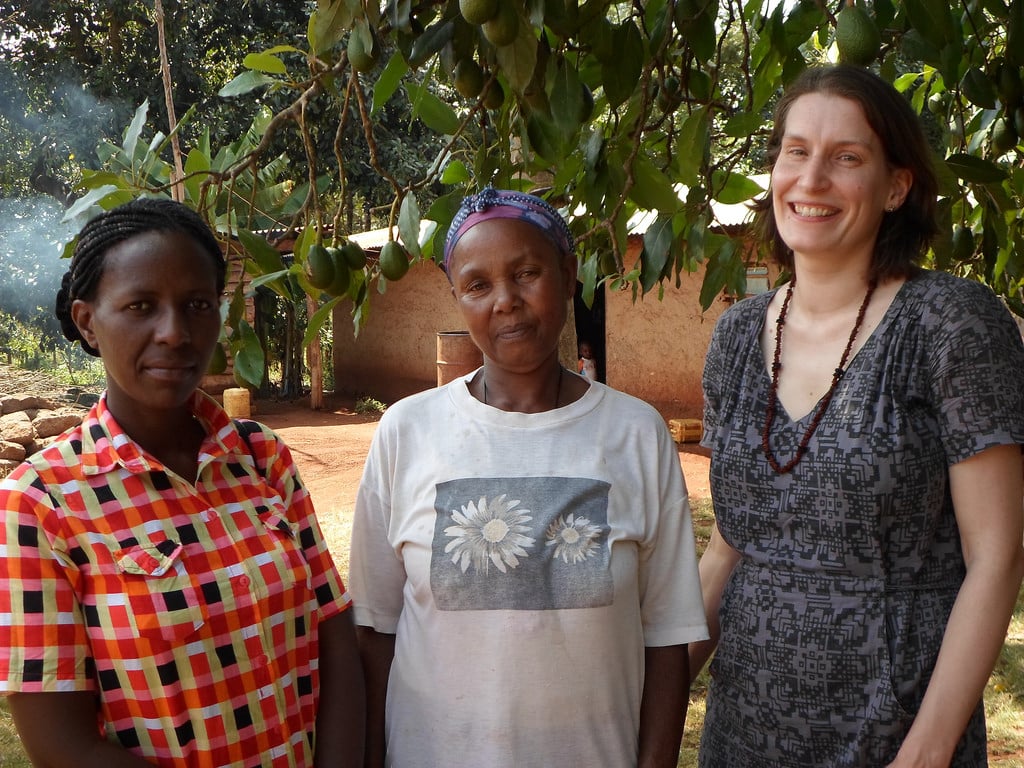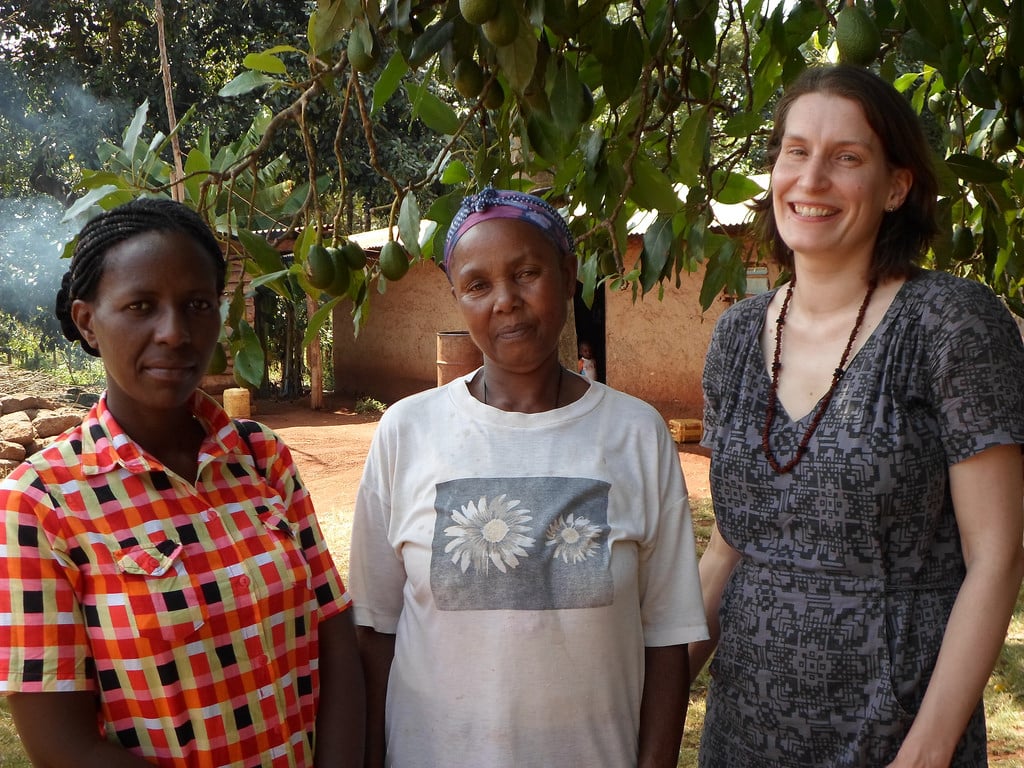

Margaret (left), of Olivalo, with Seraphina and Liz.
In early February, several Root Capital supporters accompanied Catherine Gill, Root Capital’s Vice President of Investor Relations and Rachel Serotta, our Investor Relations Officer, on a trip to Tanzania and Kenya. In the post below, Liz Wilson of the Small Foundation reflects on the group’s visit to Olivado, a fair trade and organic avocado oil producer in Nairobi and Root Capital client since 2011.
The post originally appeared on the Huffington Post Impact page.
____
Think you know how to hedge your bets?
We all know that life doesn’t always turn out like you think it will. The concept of reducing the risk of an investment by making an offsetting investment is well understood. But what if your whole way of life was intensely vulnerable? What if you were solely responsible for feeding your family, and you had to manage uncertainty at every turn?
Last week a Kenyan grandmother with less than two acres of land gave me a master class in managing risk. Together with colleagues from Root Capital, I learned how smallholder farmer Seraphina has been providing for her children and grandchildren.
The challenges she has faced are enormous. For many years she farmed her small patch of land without water or electricity. Over the years the climate has also been unpredictable, increasingly dry, and her rain-fed crops vulnerable to pests and diseases. This year her maize ears have been stolen by monkeys, and only withering stalks are left curling in the baked soil.
But talk to Seraphina, and watch her work, and you will quickly learn that she has built several hedging mechanisms into her farming system. Her maize has failed, but she is planning to grow drought resistant beans in their place. Her avocado trees are already growing heavy with fruit, and she has cleverly mixed two varieties of trees in her orchard to ensure that she will have a good harvest whatever the climatic conditions. Walk further onto her land and you will see cash crop coffee and staple food bananas growing. She has a cow for milk, and a hen with baby chicks exploring their home-made coop.
As a part of her success, a partnership with a local organic and conventional avocado oil producer Olivado, supported by Root Capital, has ensured that Seraphina now gets agronomic advice and support as to how best to nurture her avocado trees. Her labours have been rewarded with a higher price from the company for her avocado harvest. She points to the benefits of an increased income: a new tap that brings water directly onto her land, and a recent electricity installation that provides much-needed light and energy. Her home is now made of brick, in contrast to the traditional mud hut in which she grew up.
Dependent on rain-fed agriculture, life for most of Africa’s farmers continues to be intensely vulnerable. Nevertheless, smallholders all over the continent have developed sophisticated strategies to cope. I would lay money on that fact that Seraphina will maintain her portfolio of diversified planting whatever the weather. Those of us who care about agricultural development should learn from her, and build on smallholders’ skills as we seek to tackle climate change and feed the world.